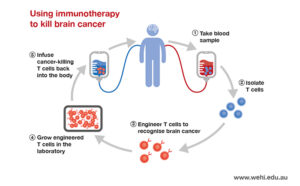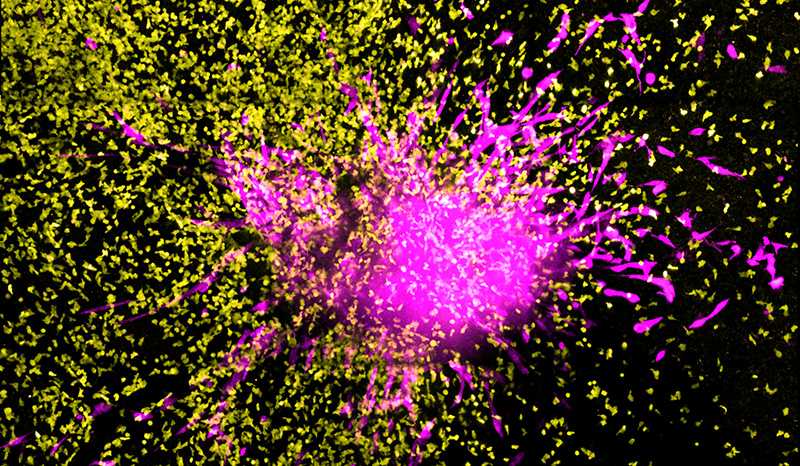Brain cancer is the abnormal, uncontrolled growth of cells in the brain.
The brain has many different ‘control centres’ that regulate all of our body functions, from breathing to walking. When the cancer grows it can damage these control centres. Even slow growing (benign) tumours can be serious if they affect a vital area of the brain.
The brain is composed of nerve cells that send messages to and from the body, and supporting cells that enable nerve cells to function. Cancer can originate in many different cell types, giving rise to various forms of brain cancer.
Research at WEHI focusses on:
- Glioblastoma multiforme (GBM), the most common and dangerous form of brain cancer. GBM arises from glial cells that support nerve cell function. Less than five per cent of people with GBM survive for five years or longer.
- Diffuse Intrinsic Pontine Glioma (DIPG), also called Paediatric Diffuse Midline Glioma, which is the most aggressive form of brain cancer in children.
- Medulloblastomas, which is the most common brain cancer in children.
- Collecting comprehensive clinical and translational data on all patients diagnosed with brain tumours.
- Investigating new models to improve access to clinical trials for patients with glioma.
- Exploring novel platforms to direct personalised therapy.
Brain cancer rarely spreads (metastasises) to other parts of the body, but cancer cells from other organs can spread to the brain.













